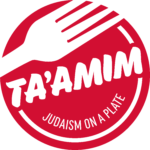One-pot Baharat Chicken and Mejadra-Stuffed Peppers
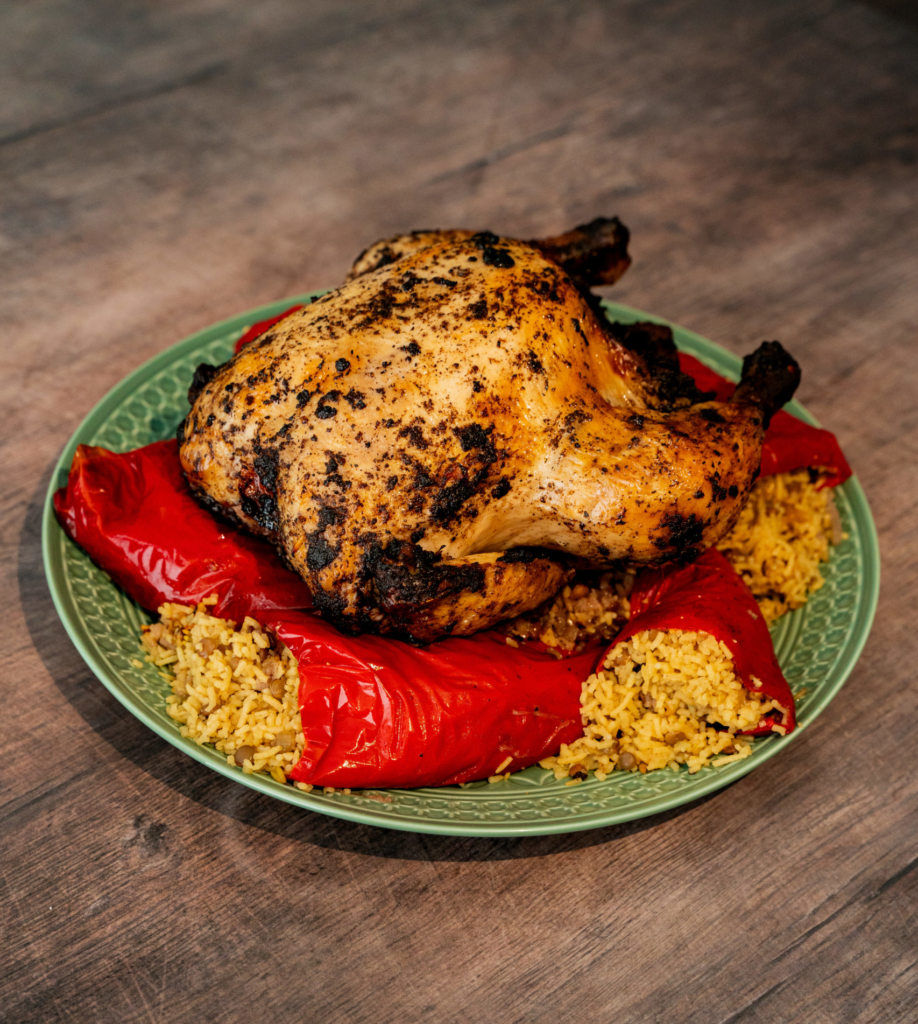
Mejadra (or Mujadarra) is a dish eaten widely all over the Levant, and commonly seen at Sukkot because of its seasonality, its “jewelled” nature, and for the simple practical reason that it could be easily transported in a single pot from the kitchen to the Sukkah! Fragrant spiced rice with lentils and onions, its symbolism can be elevated still futher by stuffing the mejadra inside sweet peppers. To complete this show-stopping one-pot dish, we pack our stuffed peppers around a whole chicken rubbed with an aromatic baharat spice mix, allowing the delicious spiced juices to infuse the peppers and rice with layers of flavour as they cook.
Moroccan 7-Vegetable Couscous
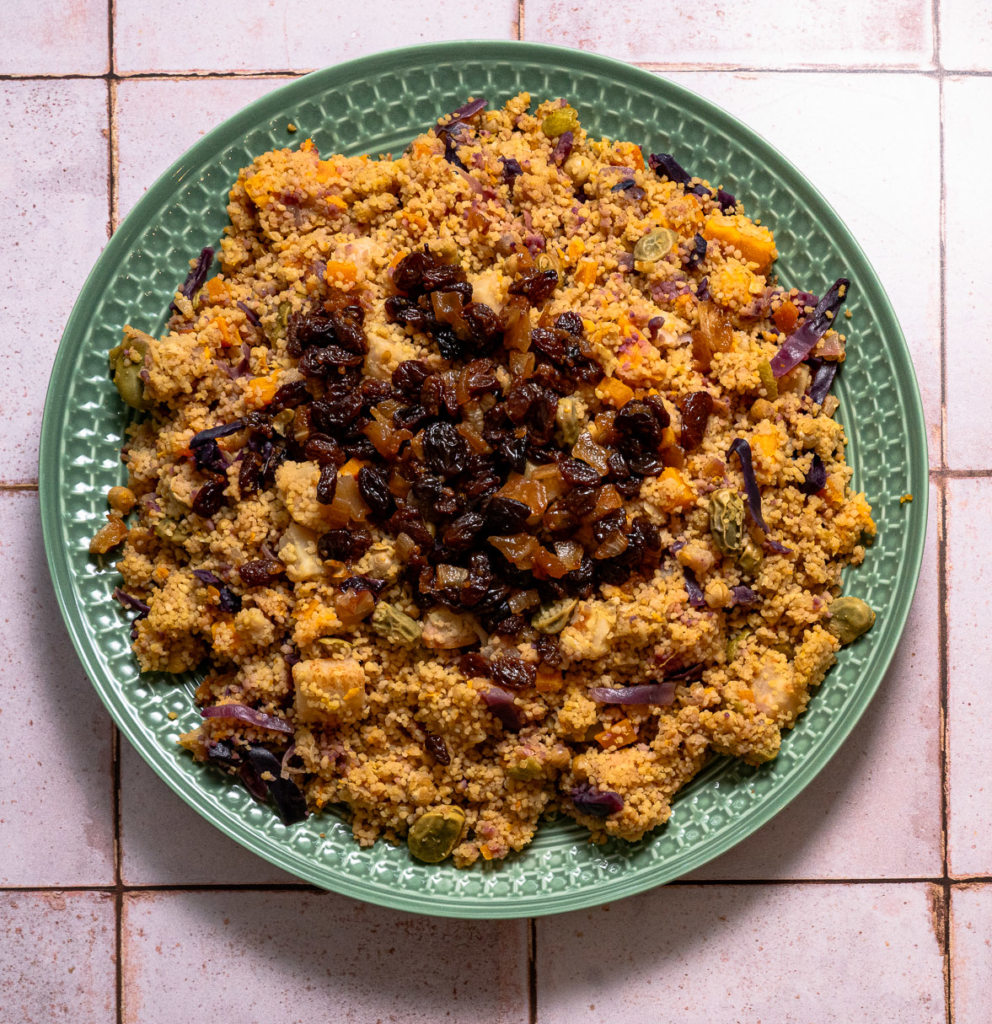
As seasonal as it gets and a celebration of Simanim, the earthiness of the root vegetable mash, rich with parsnip, potatoes and sweet potatoes exquisitely complements these deliciously tender and sweet ribs, which are marinated in pomegranate molasses and date honey, both Simanim, omens for abundant blessings and redemption from our enemies. The greens are the finishing touch on a perfectly rounded Autumn warmer, just what’s needed as those shorter nights start drawing in. Leafy greens (swiss chard, spinach or beetroot leaves) are another of the Simanim – ‘silka’ in Aramaic or ‘selek’ in Hebrew, related to the Hebrew word ‘silek’ (to depart). We ask that Hashem remove our adversaries from us in the coming year. Ifcooking this dish for Rosh Hashanah, you may also choose to add squash to the mash and leeks to the greens to add two more Simanim to the dish.
Moroccan Lamb with 7-Vegetable Couscous
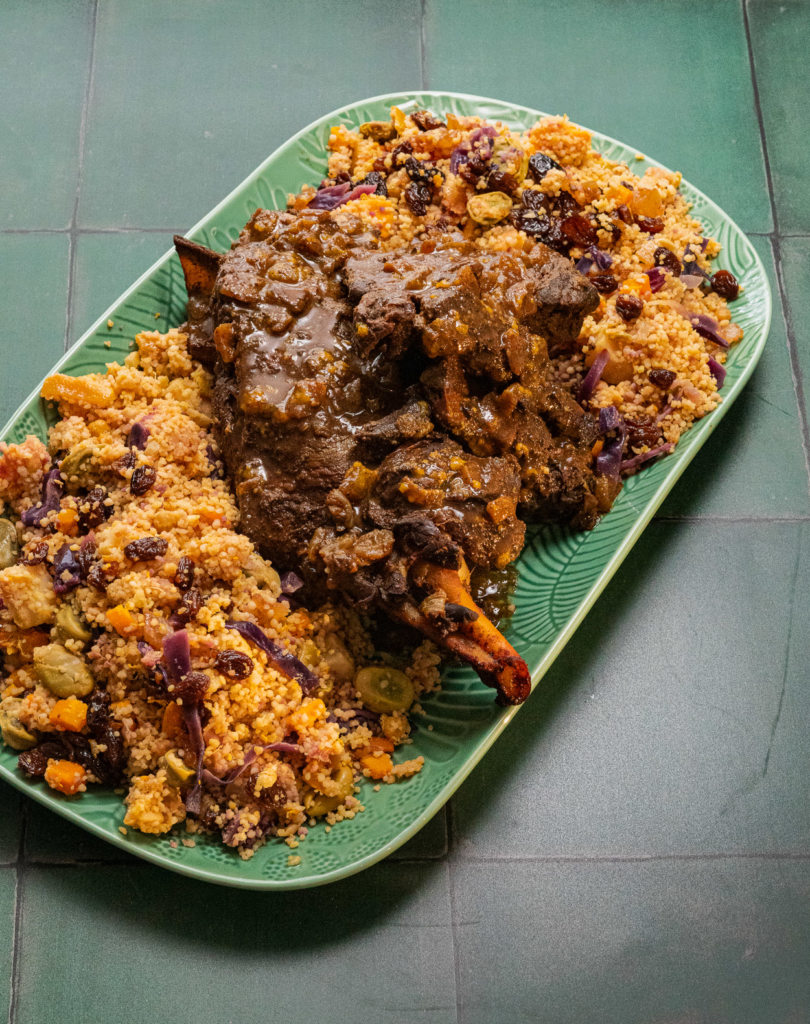
As seasonal as it gets and a celebration of Simanim, the earthiness of the root vegetable mash, rich with parsnip, potatoes and sweet potatoes exquisitely complements these deliciously tender and sweet ribs, which are marinated in pomegranate molasses and date honey, both Simanim, omens for abundant blessings and redemption from our enemies. The greens are the finishing touch on a perfectly rounded Autumn warmer, just what’s needed as those shorter nights start drawing in. Leafy greens (swiss chard, spinach or beetroot leaves) are another of the Simanim – ‘silka’ in Aramaic or ‘selek’ in Hebrew, related to the Hebrew word ‘silek’ (to depart). We ask that Hashem remove our adversaries from us in the coming year. Ifcooking this dish for Rosh Hashanah, you may also choose to add squash to the mash and leeks to the greens to add two more Simanim to the dish.
Sweet Potato and Squash Chips
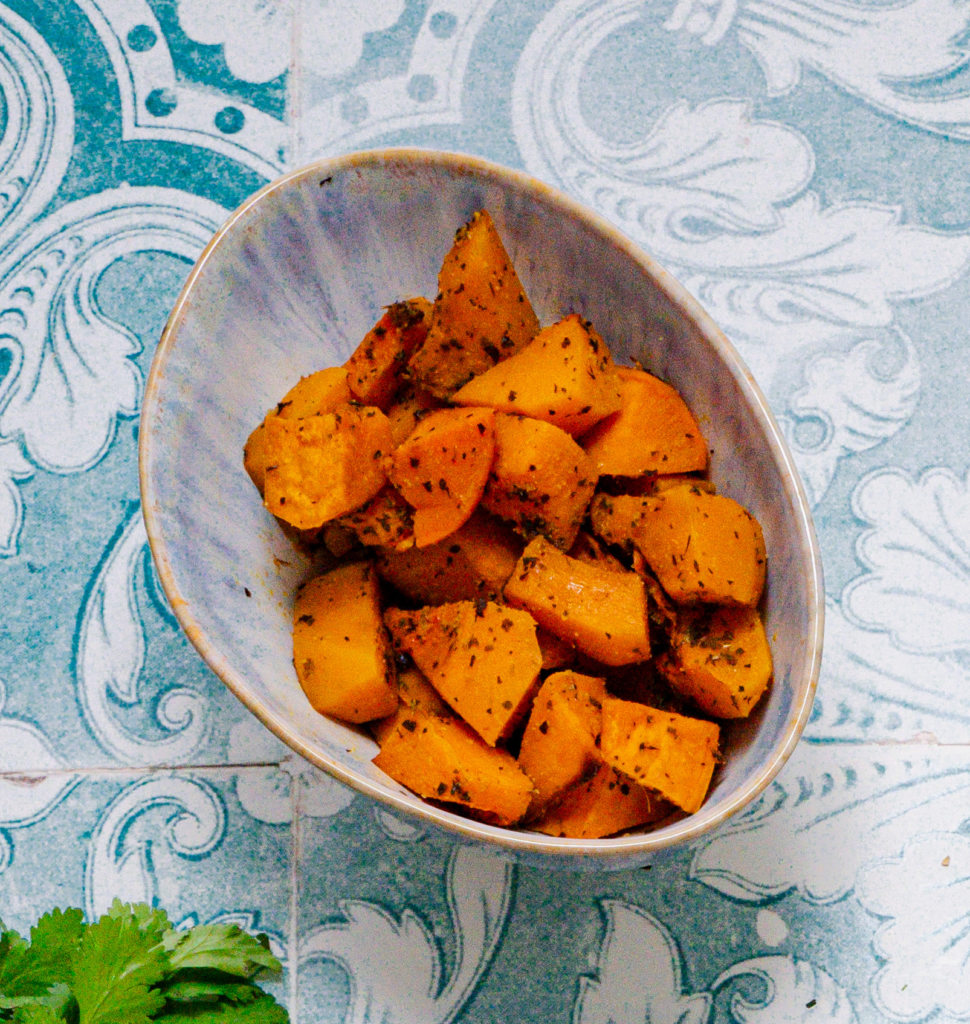
Root vegetables are a seasonal staple for Sukkot and Rosh Hashana, as well as a Pesach-friendly side and an alternative to white potatoes. These sweet vegetables are also ideal for Rosh Hashana, where we have the custom to eat sweet foods for a “good and sweet new year,” and we eat gourds such as squash as one of the Simanim, representing our desire that, if it be Hashem’s will, that the evil of our verdicts be torn apart, and that our merits be announced before Him.
Sweet and Sour Fish Tacos
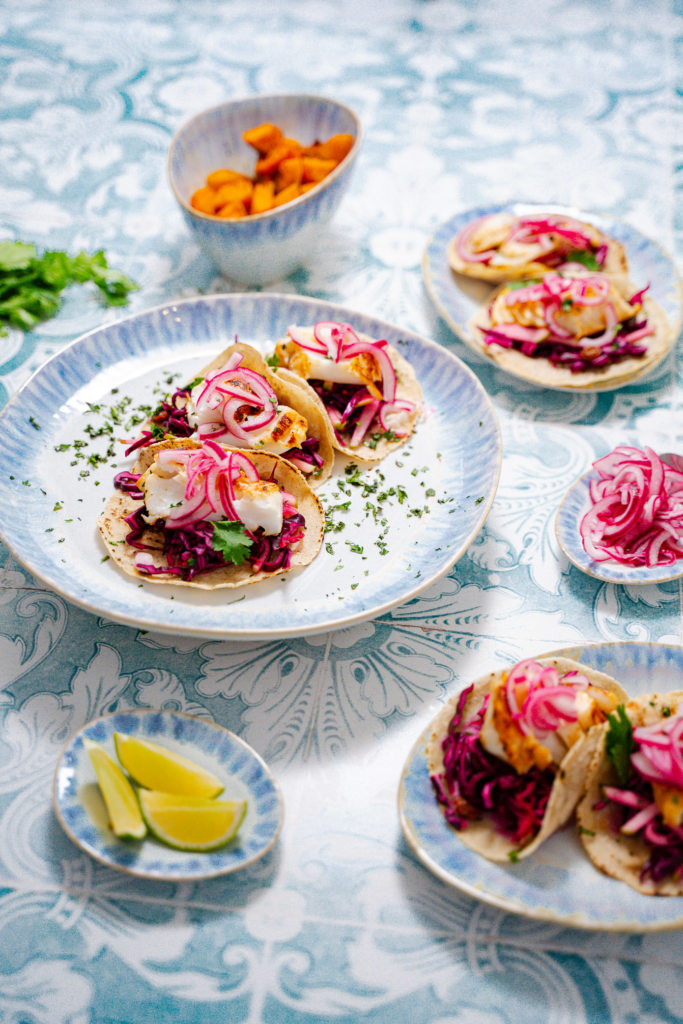
Another contemporary twist on a traditional dish, these tacos are inspired by the Italian-Jewish custom of eating sweet and sour fish for Rosh Hashanah. Pesce All’Ebraica (lit. Jewish Fish) is normally made with fillets of white fish cooked in oil, honey or sugar and vinegar, and flavoured with raisins or sultanas and toasted pine nuts.
We have seasoned our fish with South American flavours of agave and lime, bringing sugar and vinegar into the dish with pickled onions, and throwing juicy sultanas and tart green apples through a crunchy red cabbage slaw. All this is stuffed into homemade corn tacos for the perfect mouthful. (N.B. You will require a tortilla press for the tacos. If you haven’t got the time, equipment or patience to make your own corn tortillas, you can use store-bought flour tortillas, or forego the wraps altogether and serve as a plate of fish and salad with chips!)
Zesty Leek and Spinach Tagliatelle with a Garlic and Parmesan Crumb
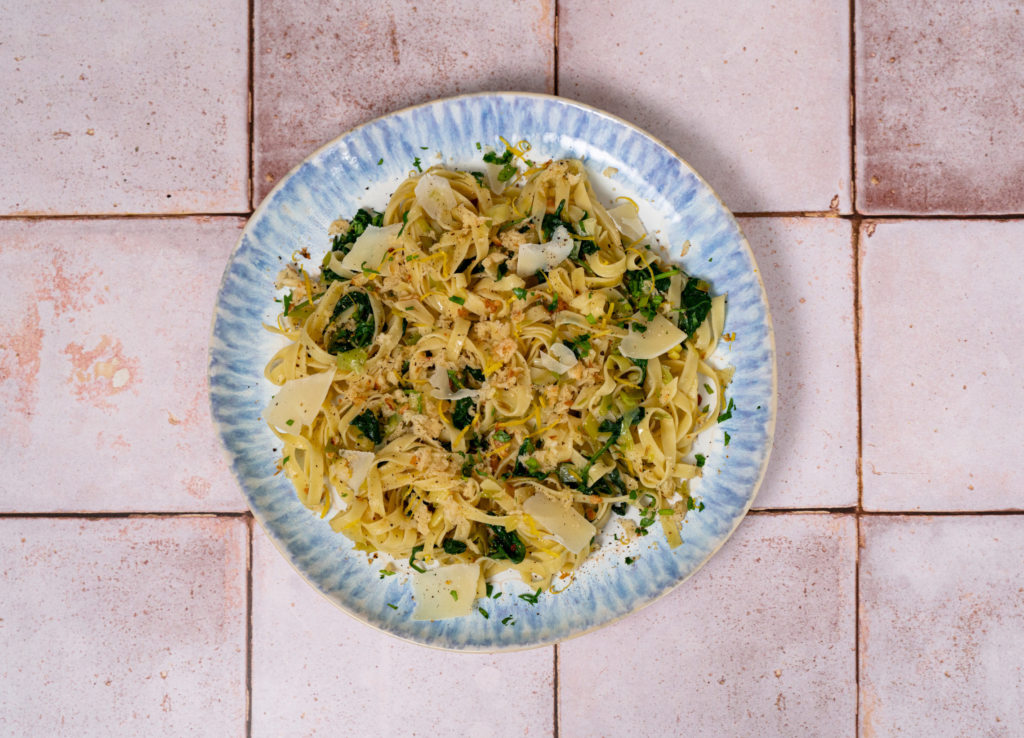
Throughout the month of Tishrei, when we celebrate the High Holy Days, Sukkot and Simchat Torah, there are dozens of Yom Tov and Shabbat meals. The Torah tells us that it is a mitzvah to make these days of rejoicing and the Prophet Isaiah that we should make Shabbat “a delight”. Talmudic sources draw a connection between food and delight, and implore us to eat the finest meals within our means. Historically, when fish and meat were costly luxuries, these became the standards for a fine meal, reserved for these days of celebration. Many have subsequently assumed the custom of eating a heavily meaty diet on Shabbat and Yom Tov, though there is no absolute obligation to do so, and there are those who feel that in 2023, when meat and fish are abundantly available, and good cheese costs almost as much as a chicken, a delicious pasta dish topped with a fine quality cheese can be every bit as delightful and luxurious! This tasty tagliatelle showcases two of the Simanim at their best, making it a superb choice for a milky (or parev) Rosh Hashanah meal.
Mini Root Veg Strudels

These plaited pastry pockets are favourites of ours throughout the autumn and winter months, when root vegetables are in season. While these veggies are readily available year-round on supermarket shelves, the earthiness and warmth of these strudels feels like a hug, and the flavours and colours evoke the very best of autumn. These strudels are packed full of symbolism, too. The seasonal vegetables are traditional Sukkot fare, as are stuffed foods, both evocative of the bountiful harvest that we pray will coincide with the festival of booths. They also contain many of the Rosh Hashanah Simanim making them an equally wonderful choice for the new year! Feel free to substitute or add whichever root vegetables you prefer. Serve hot or cold, as a starter or main, with a simple green salad. Leftovers make great lunchbox fillers, perfect for a Sukkah crawl!
Marmalade Chicken Pancakes
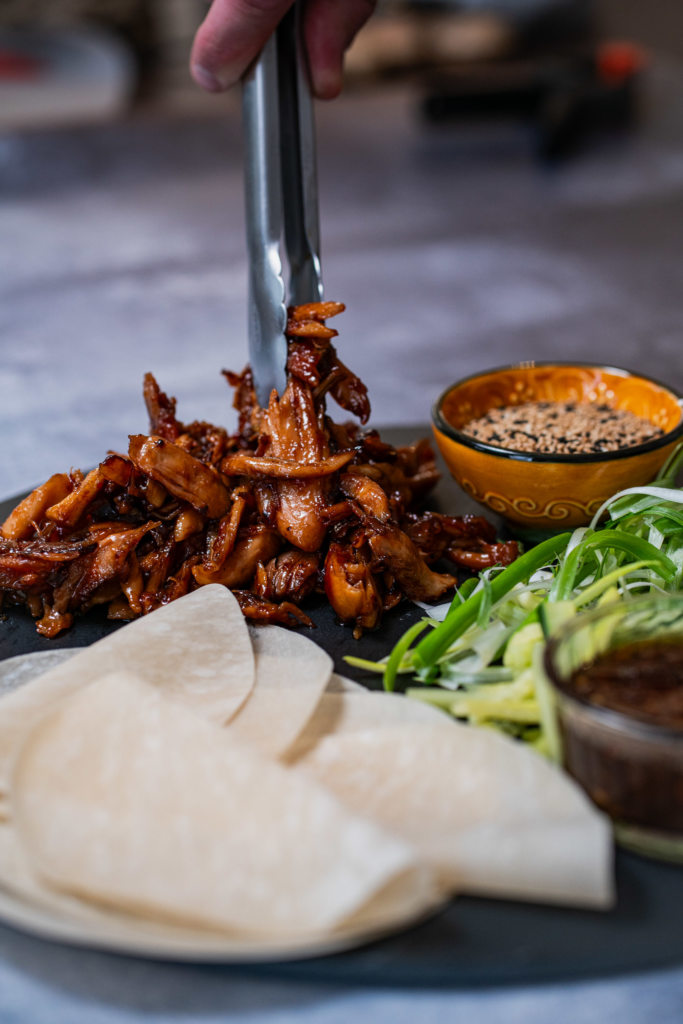
There is a long-standing tradition of adding fruit to savoury dishes at Rosh Hashanah, with dishes such as Apricot Chicken and Tzimmes (carrots with dried fruits) being particularly popular choices in many Ashkenazi homes. Apples, pomegranates and dates are also common additions to Rosh Hashanah fare due to their status as Simanim. A delightfully interactive and rather less traditional approach to bringing stuffed foods to your table this year, we have created a spin on Chinese duck pancakes with a sweet, sticky and tangy marmalade chicken filling.
Spiced Honey Halloumi ‘Teiglach’
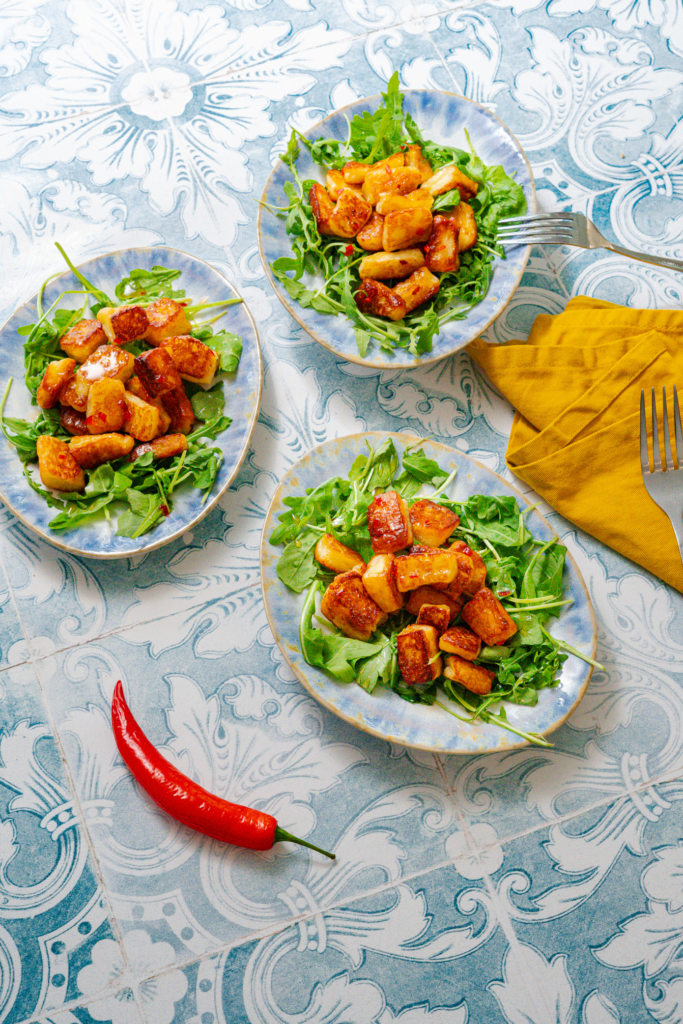
We have drawn inspiration for this sweet starter from a traditional Ashkenazi Jewish sweet treat served at Rosh Hashanah, Sukkot, Simchat Torah and Purim. True Teiglach are morsels of fried dough coated in a sticky-sweet syrup and piled together into mounds. Our recipe, however, swaps out the dough completely, pairing sweet, spiced honey syrup with mounds of salty, fried halloumi nuggets. Supremely easy to make, only 5 ingredients and incredibly moreish, these ‘teiglach’ are an ideal milky starter or crowd-pleasing snack for the High Holy Days.
